Land Development Pre-planning

Land assessment & Allocation
A property tax assessment determines the market value of a piece of property. Local governments use your tax assessment as the basis for your annual property tax bill. Assessments are usually prepared on a specific date each year, and they're often based on recent sales of comparable properties in the area.
Land allocation is formally defined as 'the assessment of land performance when used for a specified purpose, involving the execution and interpretation of surveys and studies of land forms, soils, vegetation, climate and other aspects of land in order to identify and make a comparison of promising kinds of land use in terms applicable to the objectives of the evaluation.
Budget & Feasibility Studies
Much as fiscal budgeting involves the allocation of money to particular expenditures, land budgeting involves allocating land to particular uses or, put another way, determining how much land is required to accommodate anticipated future growth or change.
In most feasibility studies, the first step is a land assessment by an engineering firm to see whether the location can work for the project. Even a small-scale feasibility study entails reviewing the client's needs, topography, and government ordinances.
Business Plans & Projected Profit Returns
Writing your property development business plan is an essential part of setting up a development company and will form the foundation of your company. A business plan is the document that sets out your entire strategy and is a document I would encourage all developers to write before even thinking of purchasing a development opportunity.
In planning your property development project, the bottom line must show a suitable return for the money and effort you put into it as a developer. The ideal profit margin is between 16 and 20% on development costs. This refers to your profit as a percentage of your total cost.
Geotechnical Reports & Soil Testing
Geotechnical investigations are performed by geotechnical engineers or engineering geologists to obtain information on the physical properties of soil earthworks and foundations for proposed structures and for repair of distress to earthworks and structures caused by subsurface conditions.
Soil studies are used to measure the thermal resistivity of soils or backfill materials required for underground transmission lines, oil and gas pipelines, radioactive waste disposal, and solar thermal storage facilities.
- closed envelope bid tabulations & award of contracts
- some infrastructurte improvements
- arranging construction financing
- rezoning process

Site Plans, Development Plans & Building Plans
Whether for a new phase, new community, or new city, we offer services that add value to projects including infrastructure design, construction observation, contract administration, land and earthworks analysis, stormwater management, and studies for feasibility, servicing, drainage, and property development potential. We transform land into real projects—a fit between physical site conditions, public expectations, fiscal requirements, and environmental constraints.
architectural plan is a design and planning for a building, and can contain architectural drawings, specifications of the design, calculations, time planning of the building process, and other documentation.
Municipal Permits & Plat Approval
LLD is responsible for ensuring that projects are designed and carried out in a way that enhance and best manage natural and built environment, that necessary utilities are appropriately designed and installed, that any connections with county infrastructure (roads, water & sewer systems) meet county design standards, and that all infrastructure meets county and state regulations.
LLD manages the review and approval of land development permits, land disturbance permits, final plats, stream buffer variances, and other related activities. LLD serves as the primary point of contact with applicants throughout this process.
sealed bidding as “… a procurement method used when the best value is expected to result from the selection of the lowest evaluated priced offer.” Federal regulations give preference to sealed bidding over contracting by negotiation, that is sealed bids over competitive proposals, if:
Time permits the solicitation, submission, and evaluation of sealed bids
The award will be made on the basis of price and other price-related factors
It is not necessary to conduct discussions with the responding providers about their sealed bid because of both the clearness and completeness of requirements
There is a reasonable expectation of receiving more than one sealed bid.
If any one of the aforementioned conditions is lacking, contracting by negotiation is the prescribed procurement method selected instead of sealed bidding.
Sealed bids are also used to ensure a “fair and open competition” where the buying organization does not have the opportunity to influence the bidding process or steer the selection of a particular company by sharing competitive bid information during the evaluation process.
________________________________________________________________________________________________________________
OUR PHILOSOPHY
Our philosophy consists of planning properly, work according to schedules and timelines, staying within budgets, having open and honest communication, attention to detail, take pride in and enjoy our work and complete customer satisfaction.
Land Development Construction
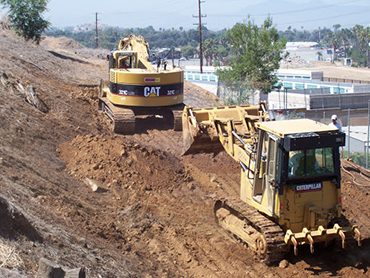
ROUGH GRADING
Rough grading is the process of making a level or slope base for various projects, such as:
- turf establishment
- surface drainage
- gardens
If a rough grade is not shaped properly, it will result in serious drainage problems, and this can cause flooding.
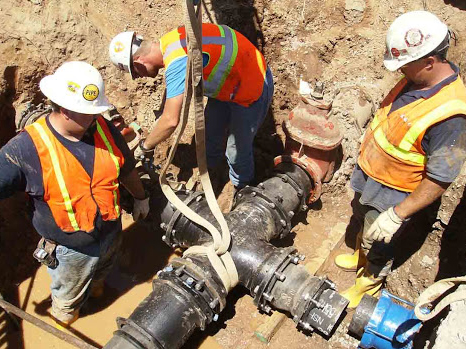
WET UTILITIES
The wet utilities are underground piping that deal with the incoming or outgoing of water resources. Wet utilities consist of installation of pipe for:
- sewer
- storm drain
- water systems
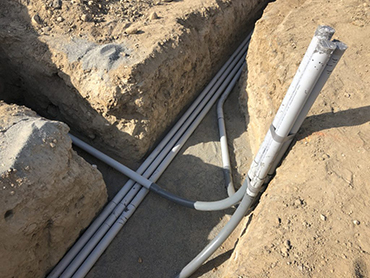
DRY UTILITIES
Dry utilities cover installation of hardwire cabling which includes:
- cable
- electricity
- telephone
- natural gas
- television
- fiber optics
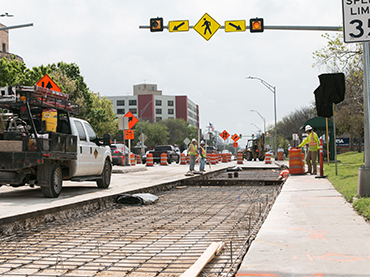
STREET IMPROVEMENTS
After the wet utilities (and dry utility crossings) are in, the street improvements can then be installed. It is very important for builders to install their streets because they cannot start building homes without it!
Street improvements include:
- Curb & Gutter
- Aggregate Base Course (“AB”)
- Asphalt Concrete (“AC”)
- Cap Pave
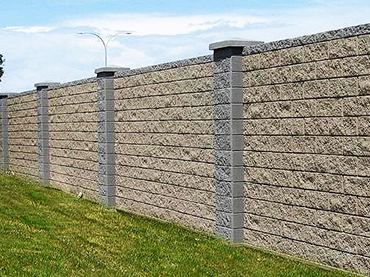
WALLS
Walls can be installed after rough grading or while the house is being built. The five types of walls are:
- Perimeter Walls
- Side Property Line Walls
- Spine Walls
- Return Walls
- Retaining Walls

FENCING
Other types of perimeter barriers are fencing:
- Tube Steel
- Vinyl
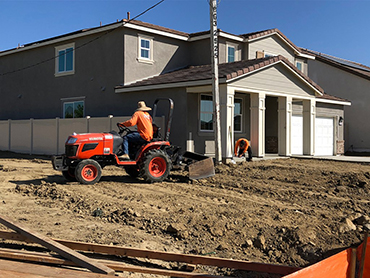
FINISH GRADING
The Finish Grade has to cut and prep the grade for the flatwork and landscape. Typical Mobilizations for a Finish Grader:
- 1st Mobilization – “Rough Pulls”
- 2nd Mobilization – “Finish Prior to Flatwork”
- 3rd Mobilization – “Finish After Flatwork”
- 4th Mobilization – “Final Rake”
- Dirt Haul
- Equipment Used
- Grading for Common Areas
- Construction Plans
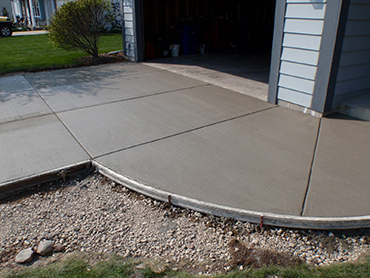
FLATWORK
Flatwork is the poured hardscape for all your patios, walkways, driveways, sidewalks, etc. Concrete is typically the main choice material for this due to its ability to form a flat, even surface. It’s also very strong once it’s cured.
- “Off-site” flatwork:
- Sidewalk & Drive Approaches
- “On-site” flatwork:
- Driveways
- Walkways
- Subgrade prep:
- Moisture & Compaction
- Reference Soils reports
- Forming, Pouring, & Finishing
- Control Joints
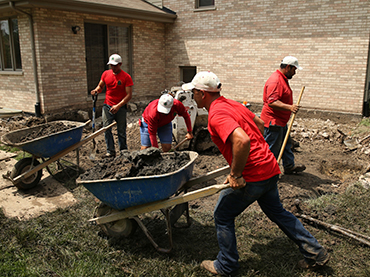
LANDSCAPING
More than just planting a few trees and shrubs, landscaping also consists of amenities and an intricate irrigation system.
- Irrigation
- POC:
- Water Meter
- Controller
- Electric Meter Pedestal
- Backflow Preventer
- Pressure Regulator
- Master Valve
- Flow Sensor
- POC:
- Planting
- Amenities
- Maintenance